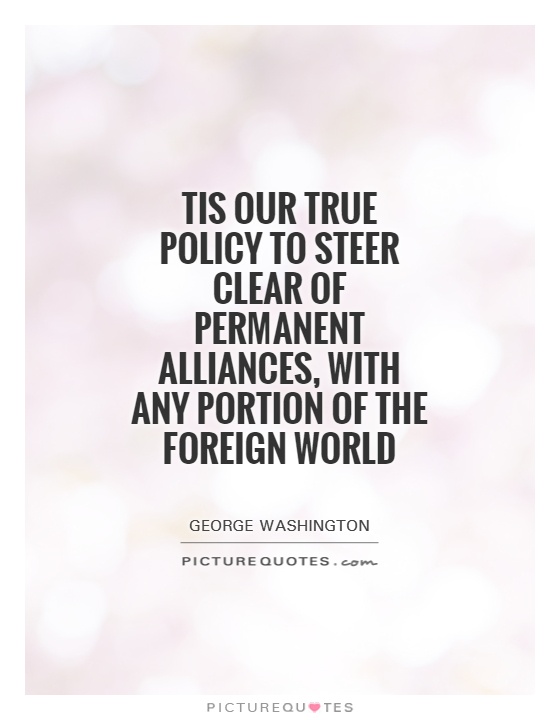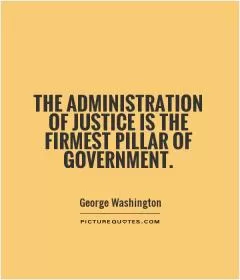Tis our true policy to steer clear of permanent alliances, with any portion of the foreign World

Tis our true policy to steer clear of permanent alliances, with any portion of the foreign World
In his farewell address in 1796, George Washington famously warned against forming permanent alliances with foreign nations. He believed that it was in the best interest of the United States to remain neutral and avoid becoming entangled in the affairs of other countries. This policy of neutrality was a cornerstone of Washington's foreign policy and has had a lasting impact on American diplomacy.Washington's reasoning for this policy was rooted in the belief that alliances with foreign nations could lead to conflicts that would ultimately harm the United States. He believed that by remaining neutral, the United States could avoid being drawn into wars that were not in its best interest. This policy was particularly important in the early years of the United States, when the country was still fragile and vulnerable to outside influences.
Washington's warning against permanent alliances was also a reflection of his belief in the importance of maintaining the sovereignty and independence of the United States. He believed that by avoiding entanglements with foreign nations, the United States could focus on building a strong and prosperous nation without interference from outside powers.
Washington's policy of neutrality was not without its critics, however. Some argued that the United States needed allies to protect its interests and ensure its security. Others believed that the United States had a moral obligation to support other nations in their struggles for freedom and democracy.
Despite these criticisms, Washington's policy of neutrality has had a lasting impact on American foreign policy. Throughout its history, the United States has generally avoided forming permanent alliances with foreign nations and has instead focused on maintaining its independence and sovereignty.












 Friendship Quotes
Friendship Quotes Love Quotes
Love Quotes Life Quotes
Life Quotes Funny Quotes
Funny Quotes Motivational Quotes
Motivational Quotes Inspirational Quotes
Inspirational Quotes